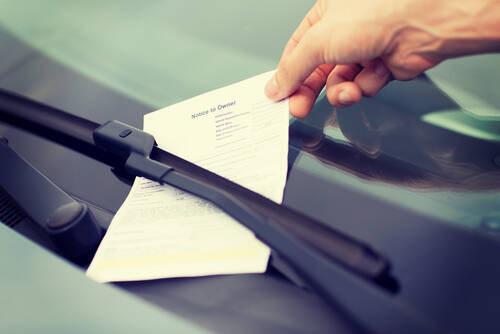So you need a place to park and you're in a hurry. You’re just going to be a minute. A minute.
Or you didn’t see the sign down the block that said you need a certain permit.
Or your coffee shop pitch meeting went long, and you weren’t in a position to slip out to put money in the meter. (Also, given the fact that you were being asked to pitch your baby in a coffee shop, it was a nightmare hour that had you thinking about anything but “Where am I with the meter?”)
So yeah, you got a parking ticket. Oh well. We’ve been there.
Except, what do you think a parking ticket goes for these days? Just for your average, run of the mill overstayed the meter sort of thing, what do you think you should pay? $20? $30?
In Los Angeles, if you stay too long in a metered space, it’s $63. The same fee is applied if you park too far from the curb (over 18 inches), park overnight in an area without the proper permit, or if you park in front of a fire hydrant. (Doesn’t it seem like parking in front of a hydrant should be more?) If you’re parked on the wrong side of the street when the street cleaners show up, you’ll pay $73.
Los Angeles’s fees aren’t the highest, though they’re close. Chicago and New York’s average parking ticket costs $65. In San Francisco it’s $74. (In San Francisco if you don’t turn your tires when you park, you get a ticket of $58. I know, the city has hills, but still – when was the last time you heard about a parked car rolling the streets of San Francisco?)
Now, if you live in one of these cities (or you never get parking tickets), all of this might seem reasonable. The ticket, after all, is meant to dissuade you from making the same mistake again, isn’t it? It’s a punishment for bad behavior. A deterrent.
Or is it? In Los Angeles, a group of activists is arguing that rather than an attempt to deal with parking issues, current fees are about adding cash to the city budget. As in, the city needs money, and $161 million (LA's draw last year) helps a lot. (Despite its much smaller population, San Francisco pulled in $130 million.)
The Los Angeles Parking Freedom Initiative began in late 2013 as the work of a guy whose yoga class went longer than the nearby parking meters allowed for, and another who had been involved in the effort to remove cameras that took photos of people going through red lights. Working with groups like chambers of commerce, neighborhood councils and resident associations, the LAPFI has since been pushing the city to stop thinking about parking tickets as a money making venture. Fees should reflect the issues involved.
A violation that doesn't involve a safety issue or should be pinned to something reasonable, like the median hourly wage (as reported by the Bureau of Labor Statistics). You screw up your parking, you lose an hour's work--it kind of makes sense. And right now, that would reduce most tickets to $23.
"We are not cows on a dairy farm to be milked whenever the City has trouble making fiscal ends meet!" the LAPFI write on their website. "And while the City focused on rolling out every conceivable means of 'monetizing parking assets' at the expense of its citizens, real world parking problems are being ignored."
The LAPFI also proposes other reforms, like requiring meters to allow three hours of parking, removing meters in residential areas, ending parking restrictions after 6pm and on Sundays and cutting the bureaucracy that makes appealing a ticket nearly impossible.
(Or even just paying a ticket--last year I spent five months (and a lot of hours of Muzak) trying to prove to the city that I had indeed paid a ticket. Even after I sent in the cancelled check--which of course I had to pay my bank to get, thank you very much--I had months of different administrators insisting they had never received anything and now I would have to pay another $135 or be chased by loan agencies. It was like Kafka, except boring. I would much rather be a bug.)
These sorts of ideas and groups rarely lead to anything except frustration and many empty bottles of pinot. But believe it or not, the city of Los Angeles is listening. This spring Los Angeles Mayor Eric Garcetti convened a working group to consider the proposals of LAPFI, as well as measures like having meters charge more depending on the demand or allowing people to pay for more time using their smartphones.
The city’s even considering where ticket money goes. Currently, all cash taken in can be used however the city wants. LAPFI and others argue that at least half should go back into the needs of the part of the city from which it came. If someone's been messing things up for people in Inglewood, then Inglewood should see some of that money.
Where this all will end up, only time will tell. But in this day and age, with the financial issues that cities face, a Mayor who's even willing to ask the questions--well, it almost makes you want to pay your ticket in the first place.
Almost.








